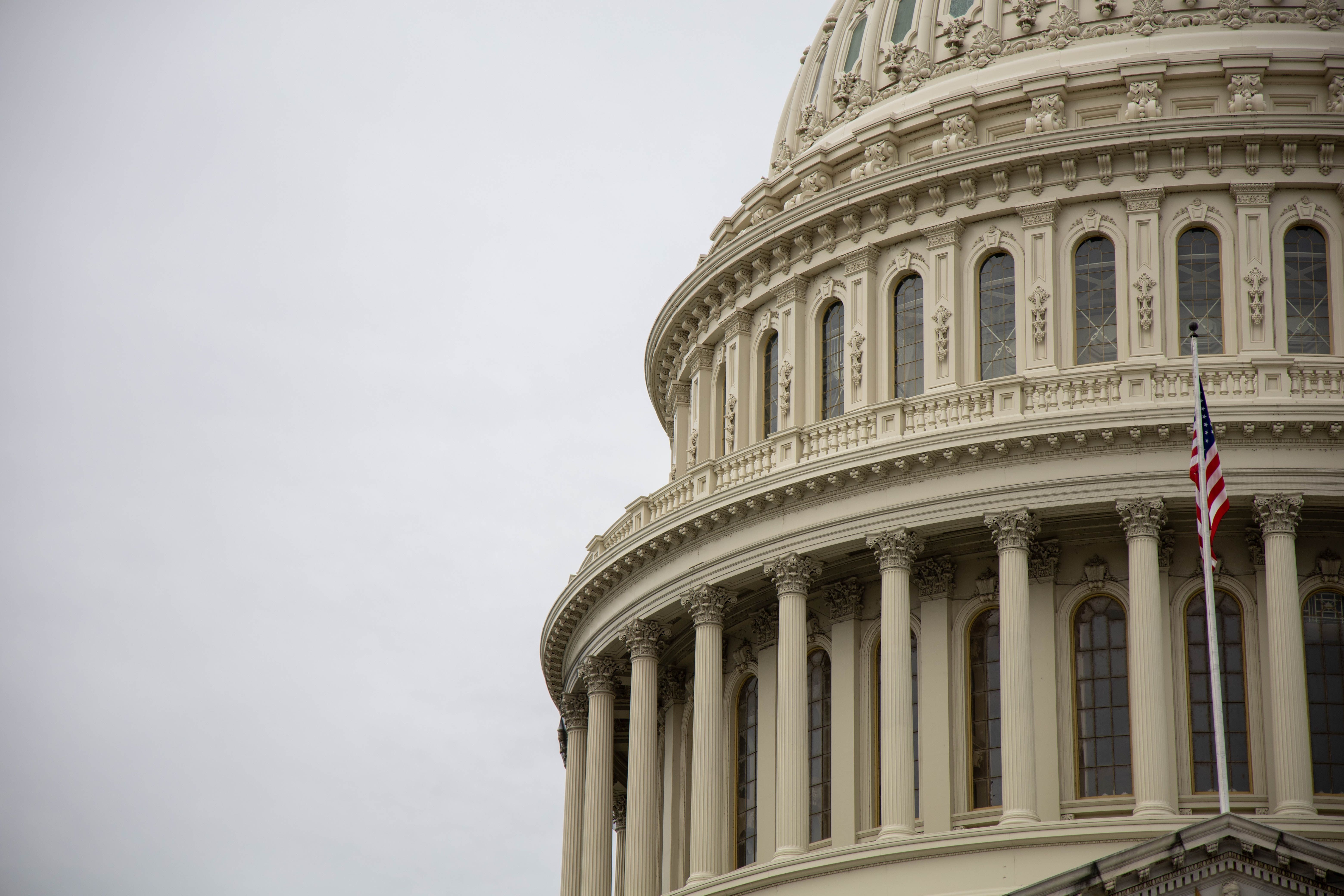
Silicon Valley's Reality Check: America's New Tech Laws

Silicon Valley’s Reality Check: America’s New Tech Laws
After sixteen months of penal review, US lawmakers finally have their day in court with the big four—Amazon, Apple, Facebook, and Google.
Five bills have been drafted by the House and submitted for judicial review in response to its findings. These proposals seek to limit the competitive advantage that these companies and others like them enjoy currently.
Marketplace owners, Amazon being one very clear example, will no longer be allowed to promote their own products over others using their platform. Other concerns, such as the eradication of nascent competition by winner-take-all acquisition, are also on the table for discussion.
What Is an Antitrust Law?
 NeoDownloader - Fast and fully automatic image/video/music downloader.
NeoDownloader - Fast and fully automatic image/video/music downloader.

According to Sub-section (a) of Section 12 of the Clayton Act , an antitrust law is an initiative that seeks to protect fair trade from monopolies who wish to exploit the market at the expense of every other player in the game.
The Clayton Antitrust Act of 1914 and the Sherman Act of 1890 can be considered precursors to this recent effort. These five new antitrust bills build upon the foundation of precedent established by these two important statutes, updating how we define anticompetitive behavior legally to include the underhanded tactics of the present that make monopolies like Big Tech possible in the first place.
 Lyric Video Creator Professional Version
Lyric Video Creator Professional Version
What Are the Five Antitrust Bills?
More than merely a cry for companies like Google to “break up their businesses ,” these bills outline the specific business practices that extinguish competition at the source.
1. The American Choice and Innovation Online Act

Probably the most-cited of the five as of this time, this bill will prevent large companies from using their own marketplace advantages unfairly and undercutting those selling on the platform independently.
Those intimately involved with the platform’s operation will no longer be able to use their behind-the-scenes edge to their own gain. Practices that prevent smaller brands from gaining traction will also be targeted under this section.
If successful, access by way of complicity in these marketplaces will no longer be considered fair game. More important than that, however: the use of non-public data generated or otherwise obtained through the platform by the marketplace owner to support their operations will no longer be condoned.
This bill also frees platform users from software applications that, before, were ever-present on their devices and nigh-uninstallable to the layman. Business users of a given platform will enjoy unrestricted access to their own data under this act, as well.
In short, this antitrust bill will ban companies from preferring their own products or services unfairly on their marketplace platforms. “Choosing” winners or losers will become a thing of the past.
Related: Tech Companies Are Fighting to Kill “Right to Repair” Bills in the US
2. The Platform Competition and Opportunity Act of 2021
“Nipping a problem in the bud.” Generally harmless at our own consumer level, this notion carries dark connotations when maximized to full scale.
This section holds companies like Facebook accountable for predatory business practices that eliminate smaller companies in competition with them. Under this restriction, it will be unlawful for a company to acquire “the whole or any part of the stock or other shared capital” of another person or entity engaging in the same area of business.
“Nascent” competition here is defined as being potential competition in the future. This protects new companies from either being absorbed or knocked out of the ring before finding their own voices in their industries.
How would Amazon itself have ever been invented if not for a free and open market?
Related:The Most Polarizing Figures in Big Tech
3. The Ending Platform Monopolies Act
Much like the first, this bill involves companies who sell products in marketplaces that they own and operate from the back-end. However, the Ending Platform Monopolies Act hones in on one key area: products sold on the marketplace, by the marketplace itself.
Clearly, Amazon will be getting a run for its money. Companies who see a vested interest within their covered platform in any line of business that takes place therein will no longer be allowed to compete unfairly alongside third-party participants joining only from the outside.
The bill specifies a “conflict of interest” that should be avoided at all costs; a platform owner’s responsibility to the marketplace that they manage conflicts deeply with that same platform owner’s desire to out-sell the vendors that it represents.
In essence: leave the selling to the sellers.
4. The Augmenting Compatibility and Competition by Enabling Service Switching (ACCESS) Act of 2021
Your data is worth a lot of money to these people. How much control do you have over your own?
It’s not just the big four that you need to worry about protecting yourself against—plenty of data pirates working from outside of the establishment are interested in your personal information, too. The ACCESS Act was written to protect users from tech companies who fail to keep the data of their constituents secure.
It also requires them to maintain “transparent, third-party-accessible,” portable APIs of all of their users’ data. The idea is to make the services they offer interoperable—i.e., your medical record, as maintained by one app, can be easily transferred to the app of another service provider should you choose to make the switch.
This ensures that users who trust companies with their data are free to leave with it should a more suitable competitor present itself. The user’s former company will be legally obligated to transfer this data securely to their new platform of choice, avoiding any associated security risks in transit.
5. The Merger Filing Fee Modernization Act of 2021

Finally, we come to the economic backing to make it all happen.
Comically prefaced with twenty-five lines of numerical amendment, this last bill explains how the government intends to finance this initiative without relying on taxpayers. It also specifies that the filing fees for larger transactions conducted under these laws will be higher than those imposed on smaller transactions.
Or, in other words, the larger the company being charged, the more they’ll have to pay.
Most interesting here will be Subsection (c1): the filing fees outlined in this bill will be increased proportionally “by an amount equal to the percentage increase, if any, in the Consumer Price Index.”
The Consumer Price Index is a concept in economics that shows how expensive it is to live during a given point in time—it objectively scores the average consumer’s “market basket” of necessities, such as household goods, food, healthcare, transportation, and other living expenses in terms of “affordability.” The higher this index is, the more expensive it is to live; inflation will usually be seen as the culprit when a country’s CPI is rising.
Tethering these filing fees to the eventual consequences that the industry may have on the lives of ordinary consumers might be their way of incentivizing those paying them to toe the line. Only time will tell if this ends up nudging things in the right direction.
The Future Is a Really Big Place
With the tech industry still in its infancy, the waters ahead are murky and uncharted. If written to law, this bipartisan legislation will mark one significant triumph against the tyranny of the extraordinarily wealthy. Those of us here on the ground have few means of recourse without measures like this in place.
The forecast? Much remains to be decided. Either way, this feels like a turning point for us all.
- Title: Silicon Valley's Reality Check: America's New Tech Laws
- Author: Michael
- Created at : 2024-07-29 07:33:59
- Updated at : 2024-07-30 07:33:59
- Link: https://facebook.techidaily.com/silicon-valleys-reality-check-americas-new-tech-laws/
- License: This work is licensed under CC BY-NC-SA 4.0.
